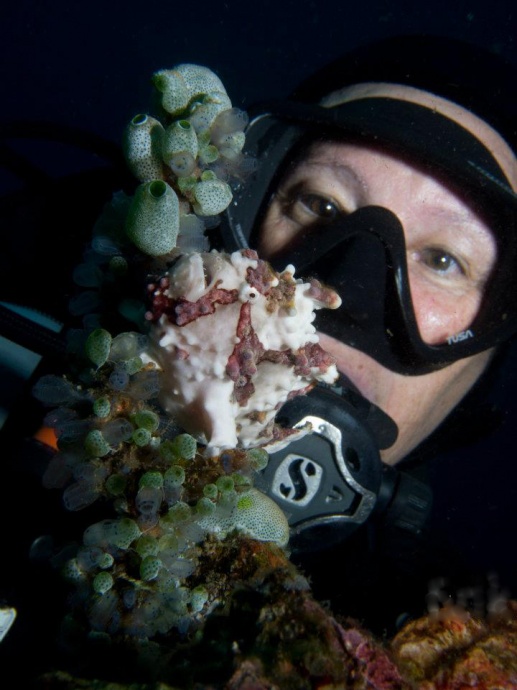Rene Umberger – For The Fishes
By Sarah Ruppenthal
It might be an upstream battle, but that won’t deter Rene Umberger from defending the denizens of the deep.
A consultant and advocate for coral reef wildlife, Umberger is the director of For the Fishes, a Maui-based marine advocacy group that “protects reefs and wildlife from the aquarium trade, which captures and sells these animals to saltwater aquarium hobbyists.”
A native of Southern California, Umberger moved to Maui in 1981 and immediately plunged into recreational diving. Since then, she’s logged more than 10,000 dives as a PADI and SDI-certified SCUBA instructor, dive master and underwater guide. “It is incredibly inspiring to be immersed in such a profoundly beautiful place,” she says, “while being accepted by and interacting with the animals as they go about their daily business on the reef.”
Her career took a very different turn during a mainland trip several years ago, when she stumbled upon a display aquarium teeming with fish that had been exported from Hawai‘i.
“The seed was planted,” she recalls. “As a SCUBA instructor and guide, I’d spent quite a bit of time with these animals in the wild… and so realized that they were quite sick and distraught. Some years later, it came together when I realized that those same types of fish were abundant in protected areas like Molokini and Ahihi Bay, but were relatively sparse elsewhere.”
Realizing her true calling, she decided to speak for those who couldn’t—the fishes. And today, Umberger is known as one of the loudest voices in marine life advocacy.
Aquarium fishing in Hawai’i has been a longstanding and contentious issue, as the state is one of the world’s largest suppliers of marine life for the mainland US aquarium trade.
According to Umberger, around 11 million “ornamental” fish are purchased annually to supply just 700,000 hobby tanks, resulting in a drastic decline in populations on unprotected reefs.
“Though only about 50 people work full-time capturing wildlife for aquarium, the aquarium trade is a major cause of coral reef degradation because the state allows limitless take on our very narrow reefs,” Umberger explains. “Some reef fish assemblages have collapsed, others have been depleted and altered, and endemic species are disappearing.”
Umberger says at least three times more fish are scooped up from Hawaii’s reefs for aquariums than are taken off Australia’s Great Barrier Reef, the largest coral reef in the world. “It’s vastly more diverse and abundant than our reefs because it’s so much closer to the coral triangle.”
These are staggering statistics, but Umberger assures that all is not lost—at least, not yet. “It’s not too late for many of the impacted species,” she says. “Once our wildlife is protected from this practice, research shows that populations will become noticeably more abundant within several years and our reefs will become healthier and more in balance.”
Replenishing our reefs is the mission of For the Fishes, as well as several other local advocacy groups determined to curtail (or, eliminate altogether) the aquarium trade in Hawai‘i. In a perfect world, says Umberger, “Coral reefs and wildlife are no longer harmed by the aquarium trade, because saltwater tanks are stocked with farmed fish that are able to thrive in captivity.”
Opponents of the aquarium trade have gained momentum over the last few years, reeling in a fair amount of support across the state. In 2010, the Maui County Council unanimously passed a law banning cruel fish-collecting techniques, and there is an active campaign to urge state lawmakers to cap the number of aquarium permits issued each year.
“Among the many groups working to protect Hawaii’s reefs, we [For the Fishes] are unique in our focus on reef inhabitants, the fishes and critters,” says Umberger. “We dovetail environmentalism with animal welfare — because both are at stake — and seek to restore wildlife populations, vibrant and healthy coral reefs and reduce wildlife waste and suffering.”
But time is of the essence.
“The clock is always ticking, as I’m acutely aware of wildlife being sacrificed and wasted while they’re urgently needed here to restore and balance our reefs and help buffer them from the coming effects of climate change,” she says. But the fishes are worth the wait, and definitely worth the effort. She hopes that, someday, “We [will] live in harmony with the natural world and each other and stop the destruction of both.”
To learn more about For the Fishes, visit www.forthefishes.org.









